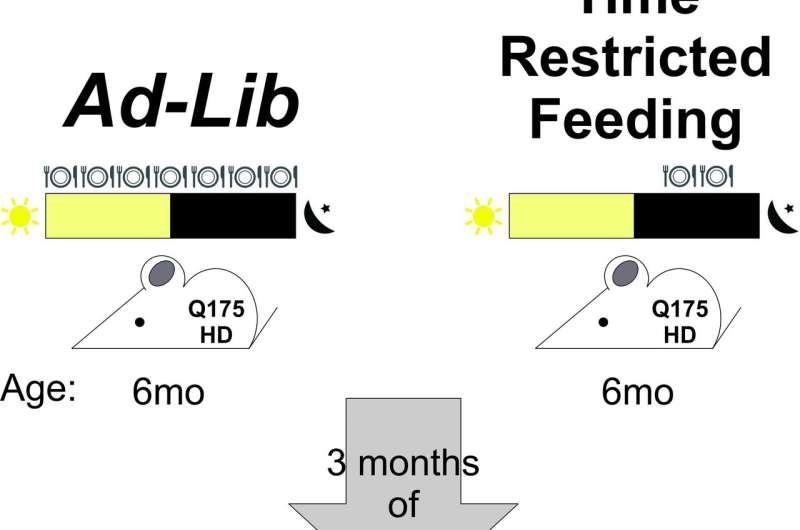Scheduled feeding improves neurodegenerative symptoms in mice

Restricting meals to the same time each day improves motor activity and sleep quality in a mouse model of Huntington's disease, according to new research published in eNeuro. These findings suggest that eating on a strict schedule could improve quality of life for patients with neurodegenerative diseases for which there are no known cures.
Christopher Colwell and colleagues used a well-studied mouse line that models the genetic cause and symptoms of Huntington's disease, including sleep disruptions that appear to be a general feature of neurodegenerative disorders. By restricting food availability to a 6-hour period in the middle of the period when the mice are active, the researchers demonstrate in these mice improved performance on two different motor tasks and a more typical rhythm of daily activity. In addition, these mice showed improved heart rate variability, a marker of cardiovascular health, and more typical gene expression in the striatum, a brain region involved in motor control that is susceptible to degeneration in Huntington's disease.
This study, which manipulated the availability but not the quantity of food, point to time of feeding as an additional environmental signal that might work in conjunction with light to regulate the body clock.
More information: Time restricted feeding improves circadian dysfunction as well as motor symptoms in the Q175 mouse model of Huntington's disease, DOI: 10.1523/ENEURO.0431-17.2018


















